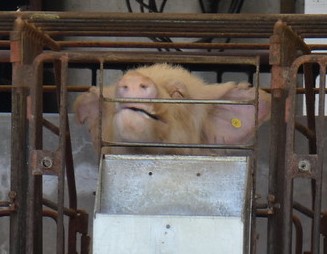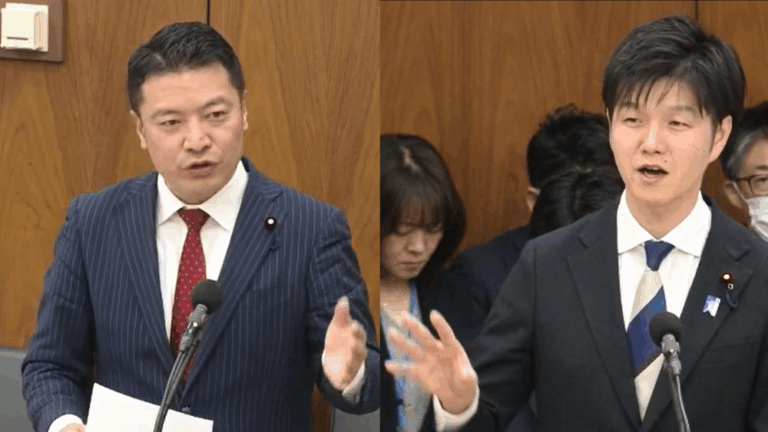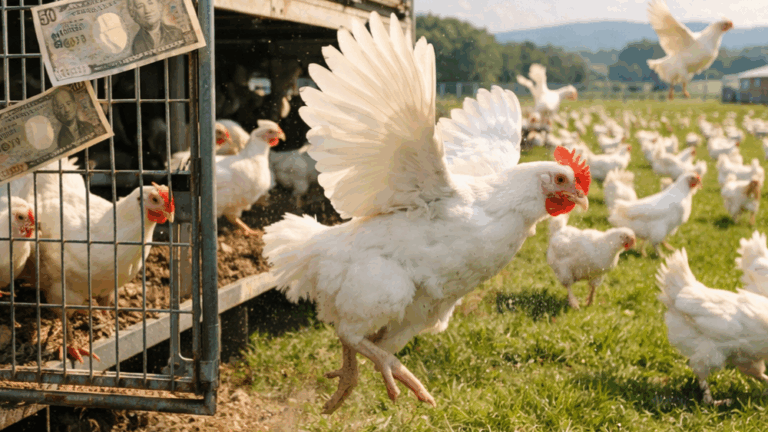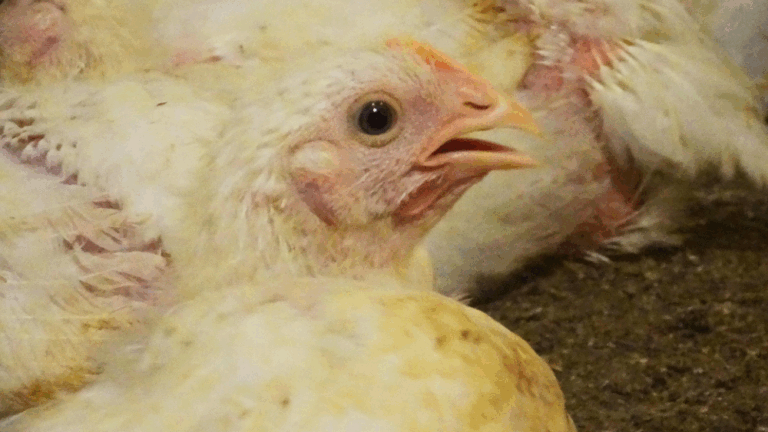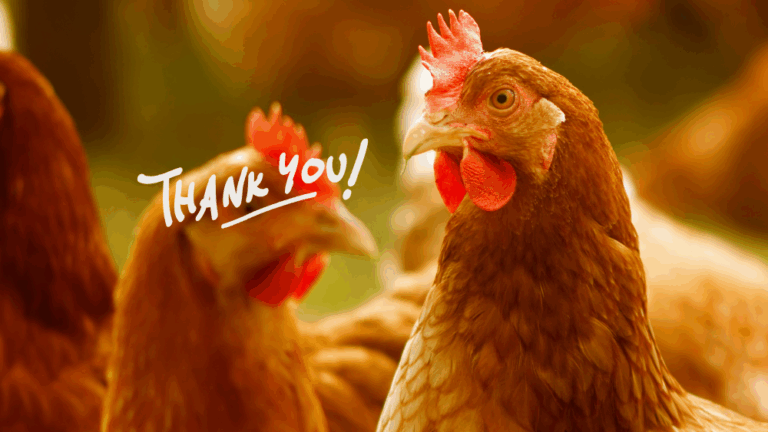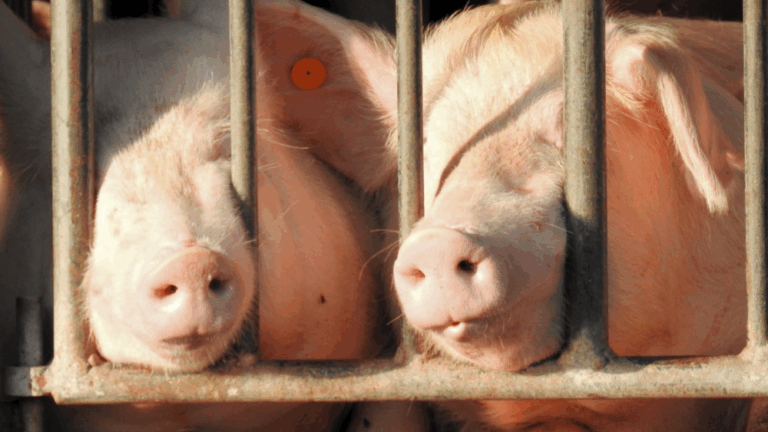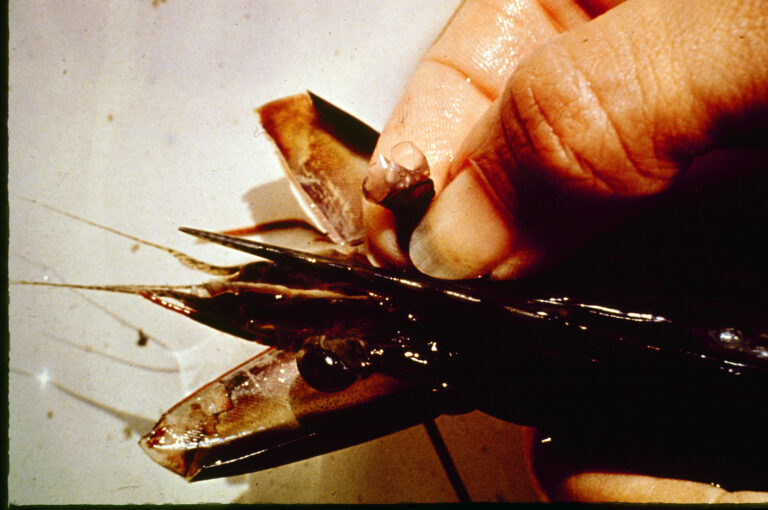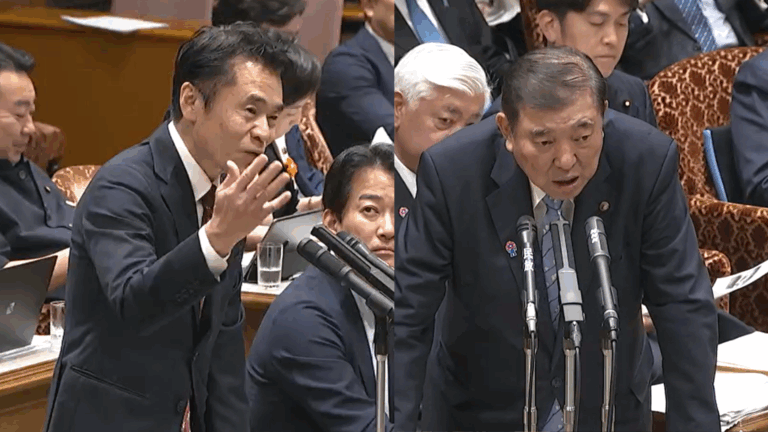On June 27th, the meat processing companies Primaham and Starzen held annual shareholders assemblies in Tokyo, and this year we were in front of the venues to encourage shareholders to ask the companies questions about the confined pig breeding practice.
A total of 12 people took part in the action toward abolishing pregnancy stalls, asking shareholders to comment on the use of pregnancy stalls at the meetings.
We handed out over 150 copies of targeted flyers of Primaham and over 100 copies to Starzen, respectively.
In the leaflets distributed, we encouraged the investors to ask their respective companies the following kinds of questions:
- Please tell us about your animal welfare considerations.
- In the EU with which Japan has signed the EPA trade agreement, pregnancy stalls have been abolished 6 years ago. What kind of efforts are you making towards abolishing the stalls?
- If evaluated by the Business Benchmark on Farm Animal Welfare (BBFAW), the company without an animal welfare policy will receive the lowest rating out of 6 stages; when will an animal welfare policy be released?
- The Farm Animal Investment Risk & Return (FAIRR) initiative, which evaluates the risks of animal agriculture, has rated Japanese ham companies including Primaham as “high risk”; what will you do as an initiative to address this?
At Starzen, the number of shareholders who passed by seemed less than in previous years, but the impression was that there were more interested people on their way back from the meeting. Some shareholders also included photos of our action in a post about the general meeting of shareholders.
At Primaham, when asked the people who returned from the meeting, one shareholder evidently asked a question about the use of pregnancy stalls, and Primaham responded, “It is difficult to switch the current farms, but we intend to quit confined rearing on new farms”.
Little by little, the corporate awareness seems to be changing.
Can the Japanese meat companies catch up to the world trend?
Cruel pregnancy stalls are anned in the EU and elsewhere, and more than 60 multinational companies have promised abolition.
Can they keep using it against the trend of the times?
The EU has been working to introduce animal welfare standards into trade agreements with each country, and there is a high possibility that animal welfare such as non-use of pregnancy stalls will be required in the EU-Japan Economic Partnership Agreement (EPA).
In a report released in November 2018, an investment initiative (FAIRR) to evaluate the risks of animal agriculture, with investors totaling 1,370 trillion yen in assets under management, Primaham received an overall score of 17 out of 100 points (even less than 31 points for Nippon Ham which was rated as “high risk”), and was rated as “high risk” in all areas except pollution.
Starzen would also likely be rated “high risk” if it is evaluated as it is.
Nippon Ham has been included since last year in the “Company Benchmark for Animal Husbandry and Animal Welfare” BBFA * 2 for investors as well, and it was the lowest among six grades. The use rate of pregnancy stalls is also one of the important evaluation items, and if Prima Ham and Stazen are also evaluated from now on, it will definitely receive the lowest evaluation if it remains as it is.
Japan’s meat companies should set animal welfare standards and reduce the use of pregnancy stalls as quickly as possible.
Everyone, please sign the petition to abolish pregnancy stalls, and please send your opinions to the ham company.
*1 FAIRR (Farm Animal Investment Risk & Return) 2018 Report:
https://www.fairr.org/article/
*2 BBFAW (Business Benchmark on Farm Animal Welfare) bbfaw.com/


